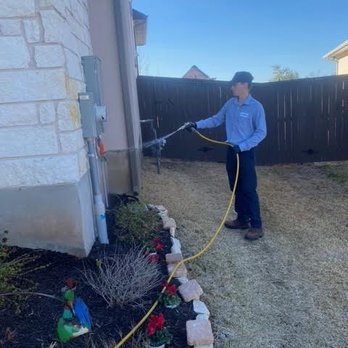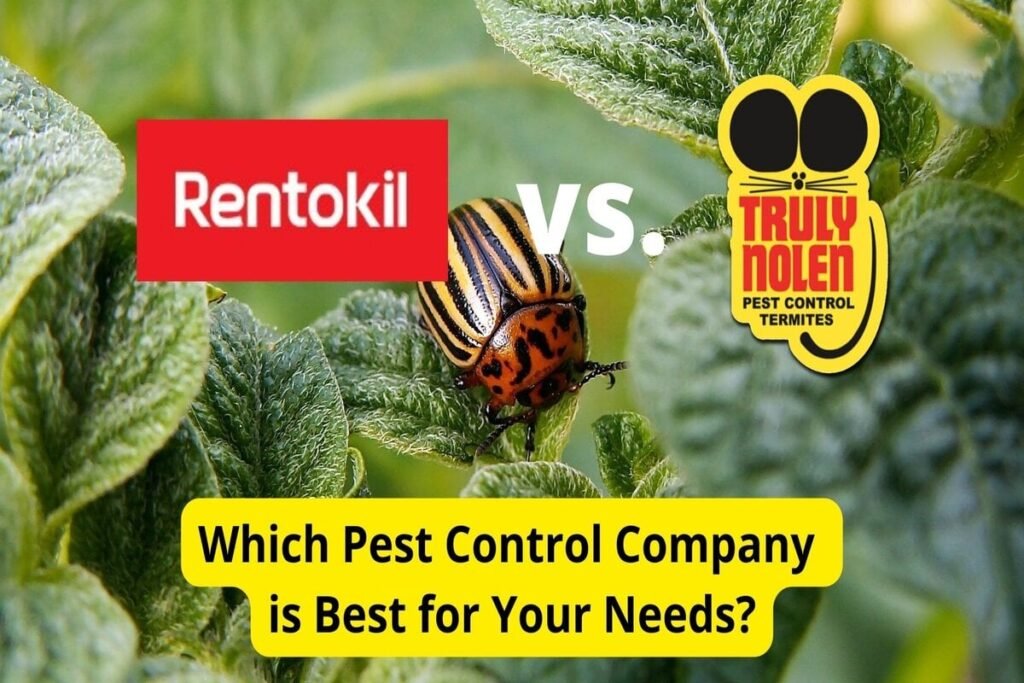Have you ever wondered about the best way to get rid of termites in your home? In this article, we will explore two popular methods: orange oil termite treatment and tenting. Both options have their advantages and drawbacks, so it’s important to understand the differences before making a decision. Whether you’re dealing with a termite infestation or simply curious about effective pest control solutions, this comparison will provide you with the information you need to make an informed choice. Let’s dive in and explore the pros and cons of orange oil termite treatment versus tenting.
Understanding Orange Oil Termite Treatment
The concept of orange oil termite treatment revolves around the use of d-limonene, which is derived from orange peels. This natural compound is known for its strong scent and powerful solvent properties, making it an effective alternative to traditional chemical treatments. Orange oil is applied directly into termite-infested areas, where it penetrates the wood and eliminates termites upon contact.
How Orange Oil Termite Treatment Works
Orange oil works by dissolving the exoskeleton of termites, leading to their dehydration and eventual death. When applied to infested areas, it seeps into the wood, reaching hidden galleries and nests. The oil kills not only the termites it directly contacts but also those that come into contact with treated surfaces. The eradication process may take some time, as the oil needs to be effectively distributed throughout the infested area.
Advantages of Orange Oil Termite Treatment
One of the main advantages of orange oil termite treatment is its eco-friendly nature. Unlike traditional chemical pesticides, orange oil is derived from natural sources and poses little risk to humans, pets, and the environment. It is also easy to apply, requires minimal preparation, and does not necessitate evacuation from the premises during treatment. Additionally, orange oil emits a pleasant smell, making it a more appealing choice than conventional treatments.
Disadvantages of Orange Oil Termite Treatment
While orange oil termite treatment offers many benefits, it does have some limitations. One significant drawback is its limited effectiveness on large infestations or extensive termite damage. Orange oil may not penetrate deep enough to reach all termite colonies or satellite nests, potentially leaving some termites unaffected. Therefore, thorough inspection and proper identification of the extent of the infestation are crucial before opting for orange oil treatment. Additionally, regular follow-up treatments may be necessary to ensure long-term effectiveness.
Understanding Tenting for Termites
Tenting for termites, also known as fumigation, is a comprehensive treatment method that involves enclosing the entire structure in a tent-like covering and introducing gaseous pesticides to eliminate termites. This technique is typically used for severe infestations or when the presence of drywood termites has been identified throughout the entire building.
How Tenting for Termites Works
During the tenting process, the structure is covered entirely with a sealed tent, ensuring that no gas escapes. Pest control professionals introduce a specialized fumigant gas into the enclosed space, allowing it to permeate every crack, crevice, and void inside the building. The gas penetrates all accessible areas, including hidden termite galleries and nests, effectively eradicating termites at every stage of their life cycle.
Advantages of Tenting for Termites
Tenting for termites offers a highly effective and comprehensive solution for severe infestations. It enables the treatment to reach inaccessible areas, ensuring that even the most hidden termite colonies are eliminated. The fumigant gas used in tenting treatments remains active for an extended period, providing residual protection against future infestations. Additionally, tenting is a one-time treatment that can offer long-term relief from termites when implemented correctly.
Disadvantages of Tenting for Termites
Despite its efficacy, tenting for termites does have a few drawbacks. First, it involves a significant inconvenience for occupants, as they need to vacate the premises during the treatment period, which typically lasts two to three days. Additionally, the process requires extensive preparation, including removing all living beings, plants, and consumables from the building. The chemicals used in tenting treatments can also pose health risks if not handled or ventilated properly. Finally, tenting may cause damage to certain heat-sensitive materials or delicate items.
Comparing Treatment Effectiveness
Effectiveness of Orange Oil Termite Treatment
Orange oil termite treatment is highly effective when used in the appropriate situations. It provides successful control over localized infestations and eliminates termites on contact. However, its effectiveness may be limited in cases of extensive termite damage or when dealing with large colonies.
Effectiveness of Tenting for Termites
Tenting for termites is known for its high efficacy in eradicating severe infestations. The comprehensive nature of the treatment ensures that all termite colonies, regardless of size or location, are targeted and eliminated.
Comparison between Orange Oil and Tenting in Terms of Effectiveness
While both orange oil and tenting treatments can be effective, they excel in different scenarios. Orange oil is suitable for localized infestations and offers a more targeted approach. Tenting, on the other hand, is better suited for severe infestations and situations where widespread termite presence is observed.
Comparing Treatment Duration
Duration for Orange Oil Termite Treatment
The duration of orange oil termite treatment varies depending on the extent of the infestation and the size of the treated area. Typically, the initial treatment can be completed within a day, but multiple applications may be necessary for long-term effectiveness.
Duration for Tenting for Termites
Tenting for termites involves a more time-consuming process. The sealing of the structure, introduction of the fumigant gas, and subsequent aeration period can extend the treatment duration to several days.
Comparison between Orange Oil and Tenting in Terms of Treatment Duration
Orange oil treatment offers a quicker treatment process, allowing for faster reoccupation of the premises. Tenting, on the other hand, requires a longer treatment duration due to the necessary aeration period following the fumigation process.
Comparing Cost Implication
Cost of Orange Oil Termite Treatment
The cost of orange oil termite treatment is generally lower than tenting. The exact price varies depending on the size of the infested area, the extent of the damage, and the location of the property.
Cost of Tenting for Termites
Tenting for termites is typically more expensive than orange oil treatment. The pricing is influenced by factors such as the size of the structure, the severity of the infestation, and local market rates.
Comparative Cost Analysis between Orange Oil Treatment and Tenting
While orange oil treatment may have a lower upfront cost, it is important to consider the extent and severity of the infestation. Severe infestations often necessitate tenting treatment, which may offer a more cost-effective solution in the long run.
Environmental Impact
Environmental Impact of Orange Oil Termite Treatment
Orange oil termite treatment is considered environmentally friendly due to its organic nature. It does not leave harmful residues behind, and its production involves utilizing waste materials, reducing environmental impact.
Environmental Impact of Tenting for Termites
Tenting for termites involves the use of potentially toxic fumigants, which can have short-term adverse effects on the environment. However, proper measures are taken to ensure the safe use and containment of these chemicals.
Comparative Analysis of Environmental Impact
When comparing the environmental impact of orange oil treatment and tenting, orange oil treatment emerges as the more sustainable and eco-friendly option. Its use of natural compounds and minimal residual impact make it a preferred choice for environmentally conscious individuals.
Impact on Occupants
Implication of Orange Oil Termite Treatment on Occupants
Orange oil termite treatment has minimal impact on occupants. It does not require evacuation during the treatment process, and there are no lingering chemical odors or harmful residues that could pose a risk to human health.
Implication of Tenting for Termites on Occupants
Tenting for termites necessitates the complete evacuation of the premises during treatment. This can cause inconvenience and disrupt daily routines. However, once the tenting process is complete and the structure is deemed safe for reentry, occupants can return to a termite-free environment.
Comparison of the Impact on Occupants with Both Methods
In terms of occupant impact, orange oil treatment offers a significant advantage as individuals can remain in their homes or offices during the treatment. Tenting requires temporary relocation, which can be burdensome, but it offers the assurance of complete eradication.
Safety Measures
Safety Measures in Orange Oil Termite Treatment
Orange oil termite treatment is considered safe when applied appropriately. However, it is recommended to engage professional pest control services to ensure proper application and minimize any potential risks. Precautions such as wearing protective gear and proper ventilation may be necessary during the treatment.
Safety Measures during Tenting for Termites
Tenting treatments require strict adherence to safety protocols. Pest control professionals undertake extensive measures to ensure the safety of both occupants and the environment. These include proper sealing of the structure, monitoring equipment to detect gas leaks, and thorough aeration before allowing reentry.
Comparison of Safety Measures between Both Treatments
Both orange oil treatment and tenting for termites prioritize safety during application. However, since tenting involves the use of potentially harmful fumigants, the safety measures implemented during this treatment are typically more stringent.
Limitations of Both Treatments
Limitations of Orange Oil Termite Treatment
The main limitation of orange oil termite treatment is its effectiveness on large infestations or extensive damage. It may not reach all termite colonies or satellite nests within the structure, limiting its long-term efficacy. Additionally, regular follow-up treatments may be required to maintain full protection.
Limitations of Tenting for Termites
One significant limitation of tenting is the inconvenience of temporary relocation. It can also cause slight damage to certain materials or delicate items. Furthermore, tenting may be unnecessary or less cost-effective for localized or minor infestations.
Comparative Analysis of Both Treatment Limitations
While both treatments have their limitations, orange oil treatment is more suitable for minor infestations or when the infestation is confined to a specific area. Tenting, on the other hand, is better suited for severe infestations or whole-building termite presence.
Choosing the Right Treatment
Factors to Consider in Choosing Orange Oil Treatment
When deciding on orange oil termite treatment, factors such as the size of the infested area, the severity of the infestation, and the budget should be taken into account. It is also important to consult with a professional pest control provider to accurately assess the situation and determine if orange oil treatment is the most appropriate choice.
Factors to Consider in Choosing Tenting for Termites
Tenting for termites should be considered in cases of severe infestations or when termite activity is detected throughout the entire building. Factors such as the extent of damage, the size of the structure, and the availability of alternative living arrangements should be taken into consideration.
Guidelines in Making the Right Decision between Both Treatments
To make an informed decision between orange oil treatment and tenting for termites, it is essential to consult with a reputable pest control company. They can conduct a thorough inspection, provide detailed recommendations, and outline the pros and cons of each treatment option based on the unique circumstances of the infestation. By considering factors such as the level of infestation, budget constraints, environmental impact, and safety concerns, you can make an educated choice that best suits your needs.
In conclusion, both orange oil termite treatment and tenting for termites offer effective solutions in combating termite infestations. Orange oil treatment is an eco-friendly and safe choice for localized infestations, while tenting provides a comprehensive approach for severe or widespread termite problems. Understanding the advantages, disadvantages, and specific considerations of each treatment method will help you make an informed decision based on the unique circumstances of your termite infestation. Seek professional advice, weigh the factors carefully, and choose the treatment that will effectively eradicate termites, protect your property, and provide peace of mind for years to come.
Your Expert in Animal Control and Extermination. Trust our experience for humane, effective pest management, protecting your property and ensuring peace of mind with Michael S.




